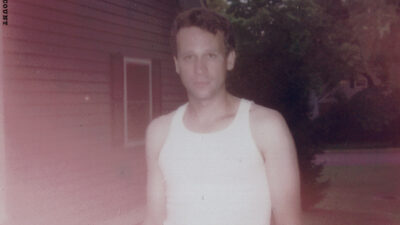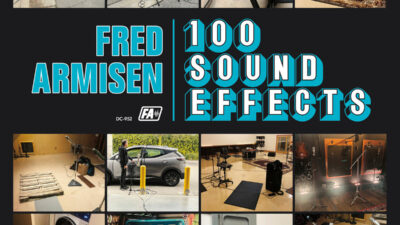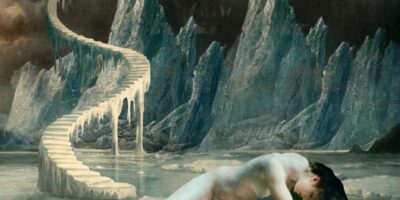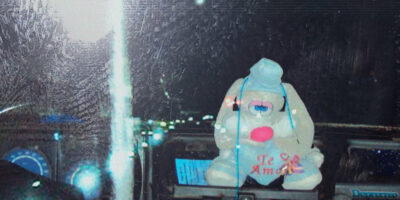Genre: Neo-Psychedelia, Post-Britpop
Favorite Tracks: “I Will Not Hide,” “Broken Eyes,” “For Tomorrow,” “Prisoners,” “Forest House”
Americans don’t get Britpop. Then again, a lot of people don’t get a genre based in a time and place rather than a specific sound, made even more confusing when the term “post-Britpop” gets thrown in to simultaneously refer to the experimental and more sanitized material towards the late ‘90s and early 2000s. It’s amazing how Americans completely missed the cool Britannia movement. Pulp, Blur, and Oasis were huge deals and media darlings in their home country and yet they’ve slowly turned into one-hit wonders in the U.S. Even the post-Britpop scene of Travis, Feeder, Keane, and Snow Patrol has had limited crossover; the only groups from either scene to have gained followings and maintained consistent traction on both sides of the Atlantic are Radiohead and Coldplay, though they did so in very different ways.
Nestled in between these two approaches exists Doves, a personal favorite back from an 110year hiatus. While they started out as a Eurodance act called Sub-Sub, they quickly morphed into a moody, sweeping guitar-driven indie act in 2000, releasing four records that ranged from the solid SOME CITIES to the excellent debut LOST SOULS. Despite a decent number of hits in England and some critical praise from the British press, they have never gotten much respect from their American counterparts. Perhaps the oversaturated market left us weary of them, but Doves had the tunes and textures to stand out from their contemporaries. After an 11-year hiatus, the trio have returned with THE UNIVERSAL WANT, another strong release that embraces indie pop rhythms with versatile guitar work and marvelous crescendos that sadly plays it a little too safe.
Much like Coldplay, Doves go for brooding sincerity, with massive, arena-sized ballads and crescendo after crescendo. Such a style can grow old and exhausting fast, but fortunately this is where that Radiohead comparison and their past life as a dance act come in. This trio squeezes every possible sound and tone from their instruments, resulting in strange electronic textures and gorgeous effects. Radiohead grounded this wankery with impeccable performances and ambitious songwriting; Doves does so with simple yet hypnotizing melodies and constant kinetic energy, like any good dance act, so their songs never feel droning or slow because something is always moving and alive.
THE UNIVERSAL WANT fits into the trajectory of their last two records, SOME CITIES and KINGDOM OF RUST, as it features greater emphasis on recognizable guitar tones and riffs and tries to streamline their trademark dense sonic mixes. Songs like “Broken Eyes” and “Prisoners” come close to a Tame Impala or Two Door Cinema Club sound with their elliptical melodies endlessly circling and never getting old because of the deluge of sounds piling around them, the bass and drums keeping songs from dissolving into runny goop, and the hooks that pay off with symphonic swell. As a whole, the record is brighter and flashier than their regular Interpol-esque grayscale, with neon electronic squelches and sharper, more colorful acoustics from the opening track “Carousels” and the follow-up “I Will Not Hide.” More so than any of the previous records, it puts the psychedelia in neo-psychedelia. When the album slows down and starts to brood, the piano work is simple yet effectively dramatic, especially with that beautiful ethereal harp-like tone on “Cathedrals of the Mind” and the slow expansion and driving chords in the bridge and final hook of the title track. Even with these minor changes, Doves is second-to-none at finding the sweet spot between brooding noir and soaring anthem, and their formula has not gotten old in the years since 2009.
Vocal performances have never been a strong suit for Doves; Jez Williams occasionally has this sneering brattiness that never matches the musical or lyrical content, and Jimi Goodwin’s deeper, anguished tone is passable if unexceptional. However, they were smartly supported by gorgeous harmonies like the swelling “Satellites” or interesting vocal production like the shimmering distortion on “Break Me Gently” that hid their flaws or accentuated the atmosphere. UNIVERSAL WANT slips on this regard at key moments; “Mother Silverlake” is the funkiest tune the band has ever put together, only to be ruined by an intelligible, droning pre-chorus from Williams and a hook from Goodwin ruined by poorly mixed harmonies. “I Will Not Hide” and the title track have a similar problem of too-quiet backing vocals from Williams, which could have added to its forceful, swaggering rollick of the former or driven home the dramatic finale of the latter.
Similarly, vocal samples are nothing new for the band; “Sea Song,” the band’s best track, has a crackling, barely audible sample of a distraught woman, like a final distress message from a doomed victim of the sea. It’s a perfect, coherent fit for the song, yet its effect is not replicated here. “Cycle of Hurt” opens with what sounds like a text-to-speech app simply explaining the message of the song, and not in any way that adds to said theme, while “Cathedrals of the Mind” has something that sounds like a politician rambling in the pre-chorus for no reason. The album as a whole suffers from the lack of experimentation and novelty displayed on “Sea Song,” or a truly striking atmospheric piece like “A House” or “Ambition.” It tries with “Forest House,” which has plenty of great, twisting acoustic groove but could have gone for a more interesting keyboard tune than the bassy drone that comes at the halfway mark.
The rest of Doves’s discography continues to live in the shadow of their debut, though even their three other records capture some of LOST SOULS’ more experimental passages. Instead of those 11 years pushing the band towards the same distorted edge and unsettling moments of their debut, they’ve settled into a comfortable formula to remind fans that they have not forgotten how to please them. Doves are more justified to do this than most given how distinct they are, but THE UNIVERSAL WANT leaves you wishing there was more to it. It still showcases time’s inability to dull their formula and a good introduction to those who perhaps overlooked them in the sea of forgettable Britpop the first time around. It’s a good retread, but a retread nonetheless.
















Comments